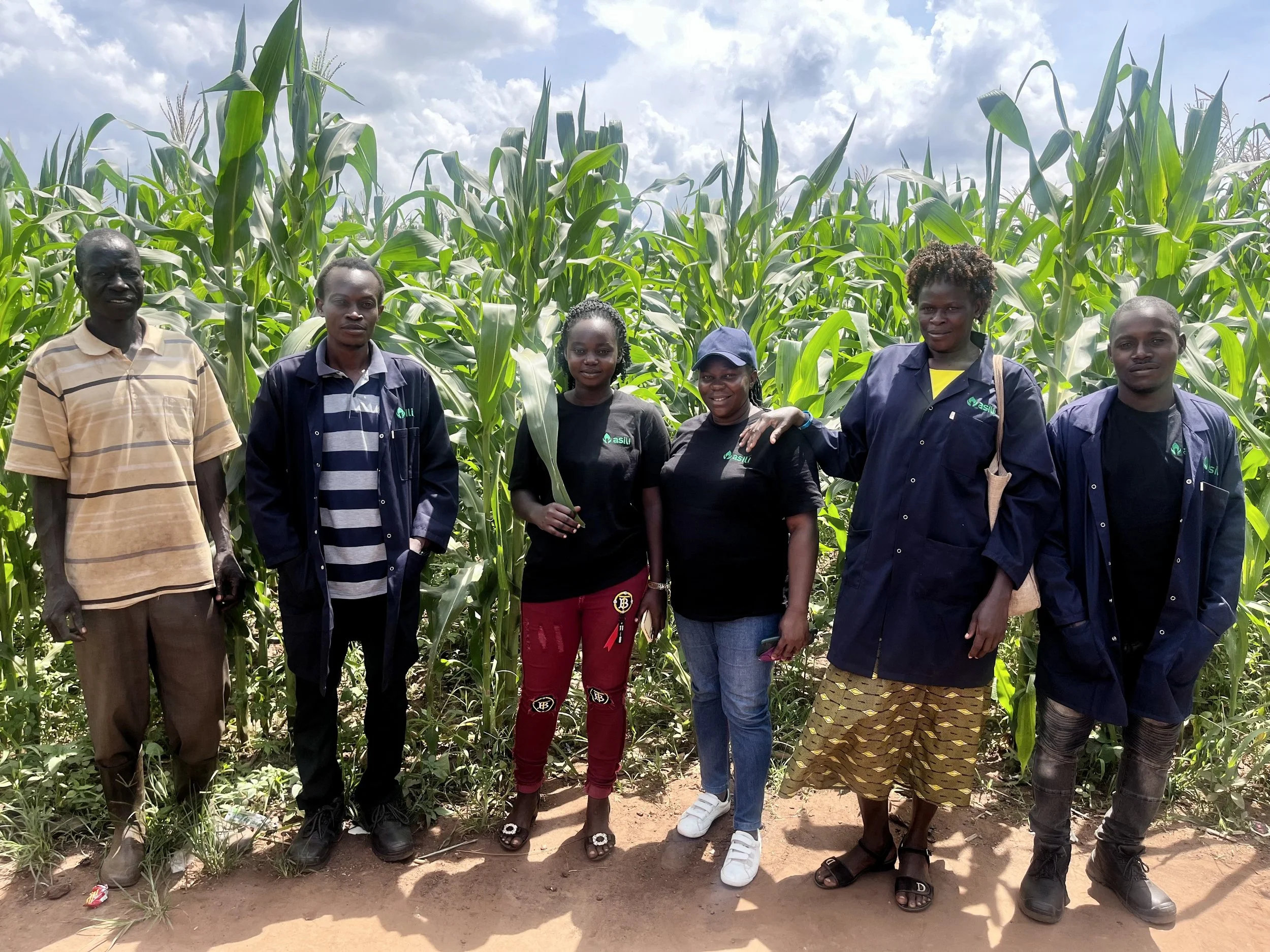Asili Agriculture: Building Resilience and Competitive Advantage in Agriculture Through an Inclusive Gender Approach
About
Asili is an integrated food security platform in East Africa, which helps farmers sustainably increase their agricultural outputs and incomes by providing improved seeds, financial and marketing services and training in good agronomic practices and conservation agriculture. Asili’s farms comprise over 8,000 hectares of land under management with a network of approximately 15,000 smallholder farmers. Through their regional hubs, they provide a vital link between small-scale and large-scale producers, agricultural commodity buyers and service providers.
AMF’s expertise includes providing gender-smart technical assistance. This, coupled with its gender-sensitive and data-driven approach, uniquely positioned the organisation to help Asili strengthen its technical knowledge and monitoring and evaluation mechanisms to promote gender-forward processes and policies.
Type of actor
Investor
Investment type
Technical Assistance
Operates from
Uganda, East Agrica
Sectors
Conservation / Agriculture / Climate
Challenging Gender Inequality in Agriculture
In Uganda, a country where it has been a struggle for women to inherit or own assets, gender inequality remains a critical challenge in all sectors. Although 76% of workers in agriculture are women, many face barriers limiting their active participation or advancement. Land ownership is one such challenge, with women only owning 7-20% of the land. Such restrictions hinder women’s ability to cultivate crops, raise livestock, and make investment decisions over land use and management. Women farmers in Uganda also struggle with access to resources such as credit, market knowledge and access and inputs such as seeds, fertilisers and equipment.
Gender norms have also limited the full participation and upward mobility of women. Only 11% of Uganda’s extension agents are women, a critical role that provides knowledge, information and training on farming techniques to farmers. Women also spend large amounts of time on unpaid domestic labour, limiting their availability and productivity for income-generating activities.
Approach
Asili has turned these challenges for women into opportunities to leverage a powerful and ambitious, yet underengaged workforce. By better serving women farmers, Asili has expanded its customer and supplier base. Meanwhile, deploying gender-smart practices into recruitment and internal practices has boosted employee retention and attracted valuable, untapped talent.
“Many think gender work means favouring women. But my role is to show them we’re not favouring women but looking at the question of how women can be empowered.”
Through funding from the Deutsche Investitions- und Entwicklungsgesellschaft (DEG) Impact, and a strategic partnership with Value for Women (VFW), AMF supported Asili to advance gender equity through the ‘DeveloPPP’ program. AMF and VFW executed a gender diagnostic to ascertain areas for improvement, and then developed a customised gender-smart TA project to enable Asili to incorporate gender inclusion in its internal and external operations.
The DeveloPPP programme ran from November 2021 to February 2023, and focused on three key activities:
Developing a gender strategy and gender commitment statement to operationalise gender inclusion across Asili’s operations, supporting greater gender diversity within the organisation.
Improving extension services to women farmers to ensure their access to improved training and skills to boost productivity and crop yields.
Designing and deploying a gender-forward recruitment process to increase gender diversity in the organisation.
Impact
Technical assistance from DeveloPPP implemented with AMF and VFW support led Asili to create its first ever official Gender Strategy, with tangible, quantitative targets to promote a culture of greater gender equality and safety. Targets were categorised under four themes:
Fostering a gender-balanced workplace.
Safeguarding women, youth and vulnerable groups in Asili's communities.
Championing women farmers and agri-entrepreneurs.
Mainstreaming gender data collection and analysis across all company functions.
Specific targets included:
Providing training on good agricultural practices to women farmers
Delivering gender sensitisation training through community consultations, and
Ensuring at least 50% of new recruits and promotions at Asili are women.
Asili is already operationalising this strategy, collecting data from women farmers and exploring microfinance options as well as providing training for women farmers. In April 2023, Asili also announced its Gender Commitment Statement.
What’s next?
Asili aims to build on the insights and momentum of the DeveloPPP program.
On the basis of the Gender Strategy, Asili has begun to carry out impact measurement exercises with women farmers. In one of these exercises, Asili learned that most require capital to invest in and grow their businesses; however, few had taken input loans from Asili. In response, Asili partnered with microfinance institution, Tugende, to provide input loans to its farmers and set a target that 30% of loans would go to women farmers. Asili met this target and ultimately provided over UGX 45,000 (USD 12,000) in loans to over 60 women farmers to support their soybean harvest this season. In addition, Asili has identified areas for further improvement, including involving men and community leaders in gender-based training.
“There was already a deliberate shift by the company to bring on board more female employees into managerial positions. There’s now also a desire to attract more women to roles that were originally viewed as roles for men, like being operators. So the gender-smart TA, it’s enhanced all of that”
– Emmanuel Onyango, Asili’s Corporate Affairs and Communications Manager
Bagenda echoes these sentiments. She sees more women taking on leadership roles and being able to make decisions. With the new gender statement in place, Keturah and her team will continue to train staff on the importance of gender inclusivity at the workplace while reviewing it on an ongoing basis.”

